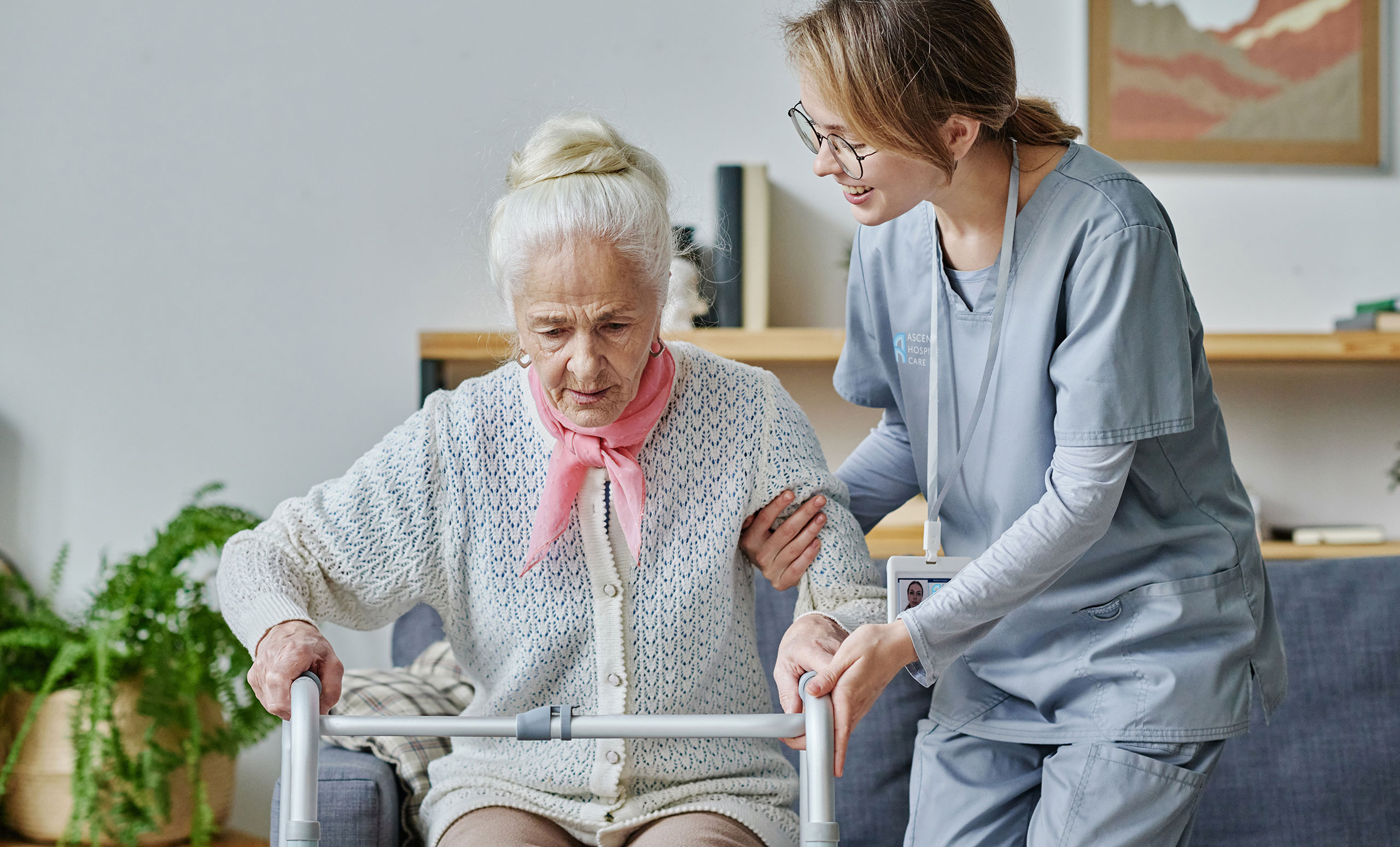Pain is a complex symptom that comes with a lot of life-limiting illnesses. The highest prevalence of severe pain occurs in adult patients with advanced cancer, but it is not the only case. Additionally, these patients often experience dyspnea and distress at the end of life. Finally, untreated or not appropriately treated pain can lead a patient to suffer mental anguish and physical pain at life’s end.
The importance of pain control during end-of-life
Everybody should follow two main principles: the end must be met with comfort and surrounded by loved ones. Therefore, keeping the patient comfortable and managing symptoms to ensure they have the highest quality of life is one of the primary goals of hospice care. Of course, not all patients experience pain at end-of-life, but recognizing it and effectively treating it is essential.
Signs of pain
Hospice caregivers should look for signs and symptoms that indicate the patient is in pain. While many patients can assess and communicate their pain levels, some patients with particular conditions can show no signs of discomfort or be unable to tell. Also, others may sometimes believe that admitting pain makes them look weak, which is false.
Some signs to look for include the following:

Managing emotional pain
The job of pain management continues beyond the physical level. It is equally essential to assess the patient’s emotional and spiritual pain. Our pain management plan is designed to evaluate physical, emotional, and spiritual needs.
Emotional pain, such as anxiety, can work together like a snowball, with stress and anxiety expanding the response to physical pain. Emotional pain can be treated using a variety of methods. The patient will also receive visits from a social worker and chaplain to help address the patient’s emotional and spiritual needs. In addition, family members should be careful not to add to the patient’s stress and anxiety.
Our hospice caregivers are experts at helping patients achieve peace and dignity while providing comfort and compassion to the patient’s family. At Ascend Hospice Care, we provide a team approach for the patient and the family. This team may include a registered nurse, a chaplain, a social worker, a home health aide, and a volunteer.




